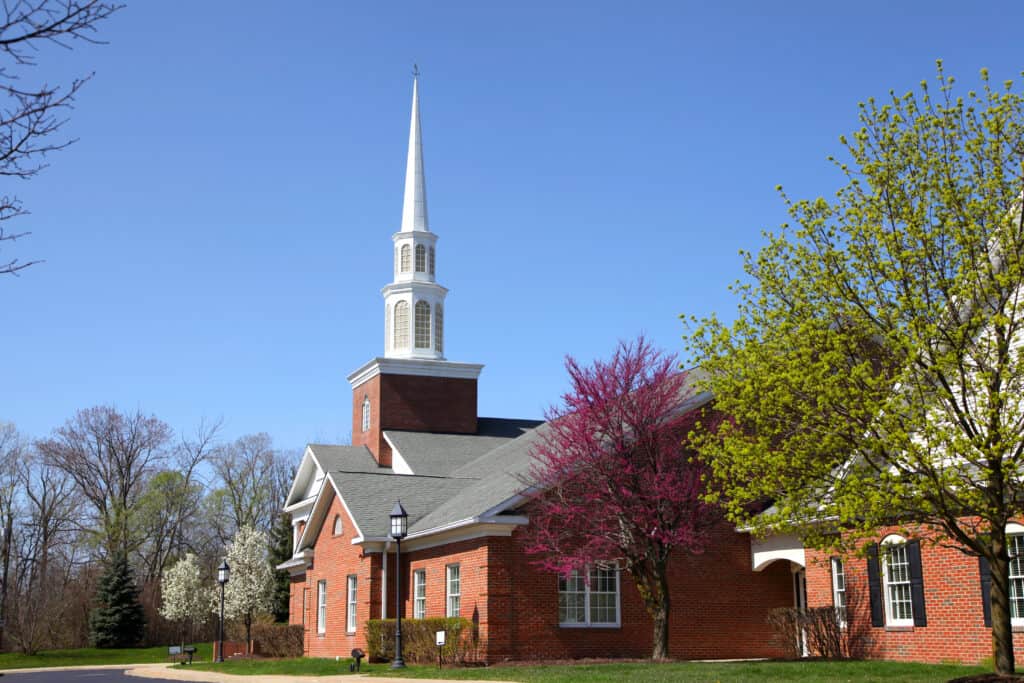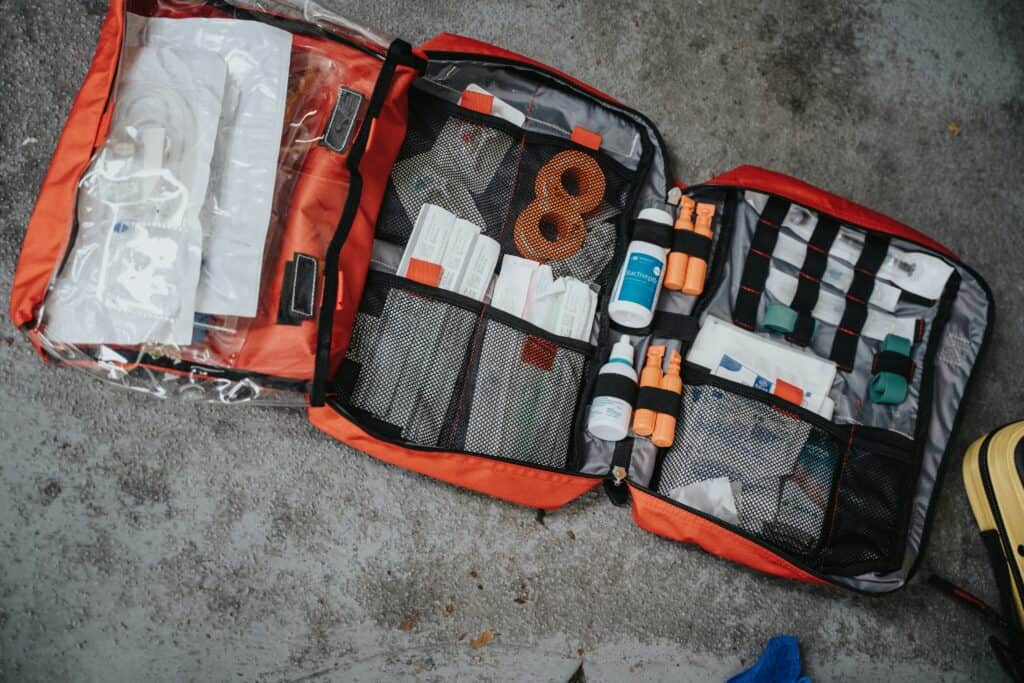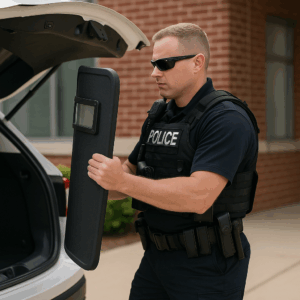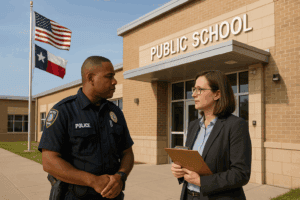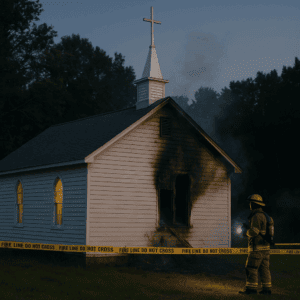In recent years, the question of whether or not churches need security has become a growing concern for many congregations.
Despite the traditionally safe and welcoming atmosphere that churches are known for, increased instances of violence and other crimes targeting places of worship have led to a heightened need for security measures.
It is crucial to recognize the potential dangers that churches may face and be proactive in ensuring the safety of the congregation and their property.
Several factors have contributed to the evolving need for increased church security, including societal shifts and growing tensions.
There has been a surge in crime, targeted attacks, and theft in and around churches, leaving many feeling vulnerable and fearing for their safety.
By implementing security measures, churches can protect their congregations and provide a sense of reassurance to those who attend services and events.
Furthermore, a well-structured security plan can act as a deterrent for potential criminals and provide a more effective response in the event of an emergency.
Key Takeaways
- Increased instances of violence and crime have heightened the need for security measures in churches
- Implementing security measures can provide reassurance and protection for congregations
- A well-structured security plan can deter potential criminals and enable a more effective emergency response
Reasons for Increased Church Security
Growing Number of Violent Incidents
One of the main reasons for increased church security is the growing number of violent incidents targeting places of worship.
In recent years, there have been numerous attacks on churches, ranging from vandalism to shootings and bombings.
These incidents have led to the loss of lives and significant damage to property, highlighting the importance of implementing effective security measures to protect congregants and staff.
A well-trained and organized church security team can help deter potential threats, providing a sense of safety for those attending services or events.
In addition, security measures such as video surveillance, access control systems, and regular security assessments can prevent incidents before they happen and quickly address any issues that do arise.
Emerging Threats to Religious Organizations
Aside from the increasing number of violent incidents, churches also face emerging threats like theft, burglary, and harassment.
In some cases, an empty car during a worship service becomes an invitation to theft, especially if valuable items are left in plain sight. A
dequate security measures, including parking lot surveillance and security patrols, can deter potential thieves and protect the property of church members.
Furthermore, religious organizations are often targeted for various reasons including bigotry, hate crimes, and protests.
As public targets, churches must remain vigilant in identifying and addressing any potential threats that arise.
This can be done through maintaining strong relationships with local law enforcement, investing in updated security technology, and regularly reviewing and updating security procedures.
By acknowledging the need for increased church security, religious organizations can create a safe environment for their congregants, staff, and volunteers.
A proactive approach to safety will not only protect physical assets and properties but also foster trust and peace of mind for all those involved in the community.
Security Measures to Protect Congregations
Churches need security to protect their congregations, especially in a world where evil exists and unexpected incidents occur.
Recent mass shootings and criminal incidents targeting churches have highlighted the importance of having security measures in place.
Let’s discuss the importance of physical security measures, security personnel and training, and emergency preparedness plans to protect congregations.
Physical Security Measures
Physical security is an important aspect to consider when securing churches.
Surveillance cameras and security systems can deter potential criminals, as they often target less secure facilities or those with the least chance of being caught.
In one study, security cameras were found to be an effective deterrent to burglary.
Additionally, access control systems, like locked doors, can ensure that only authorized individuals gain entry into certain areas of the church, particularly where children or sensitive information may be located.
Security Personnel and Training
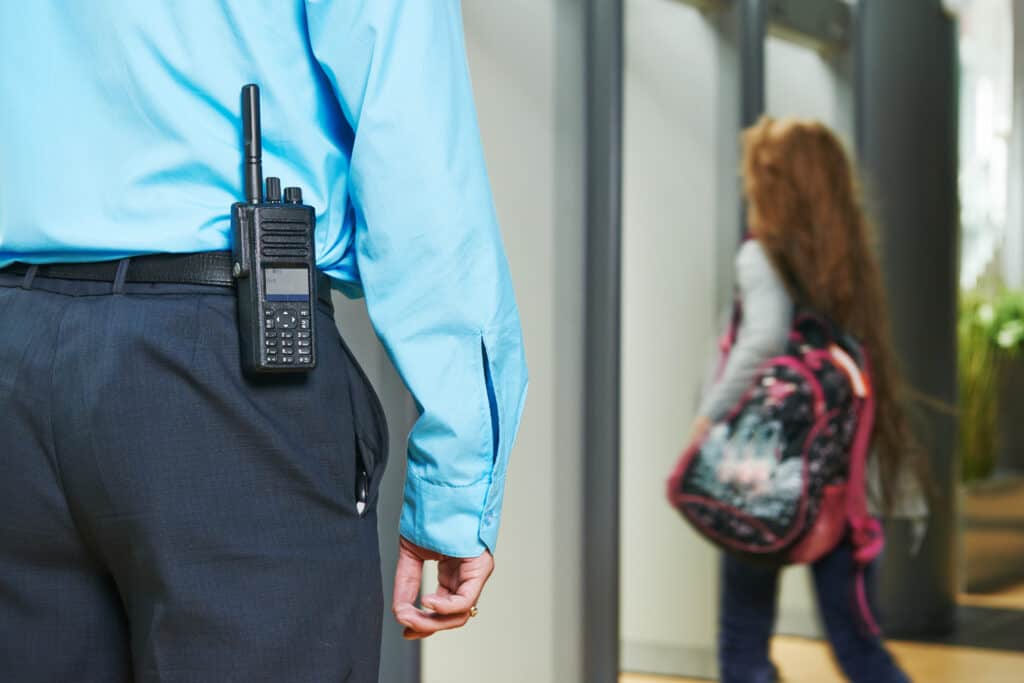
Having dedicated security personnel at a church can be its best defense against emergencies and issues.
A well-trained security team is crucial in assessing potential threats, reacting to emergencies, and providing assistance when necessary.
In fact, proper training can enable church security teams to prevent an emergency situation from escalating.
The presence of security personnel can also make church members feel safer and more comfortable, knowing that their well-being is being monitored and protected.
In addition to security personnel presence, churches should consider providing security training for staff members and volunteers.
This can include topics such as recognizing suspicious behavior, handling disruptive individuals, and responding to emergency situations.
Emergency Preparedness Plans
Developing and implementing emergency preparedness plans is crucial in maintaining a secure environment at a church.
These plans should outline procedures for various potential emergencies, such as natural disasters, medical emergencies, and active shooter scenarios.
By creating these plans and regularly reviewing them with staff and security teams, churches can better prepare their congregations and minimize potential risks.
In summary, protecting congregations from potential threats requires a combination of physical security measures, trained security personnel, and comprehensive emergency preparedness plans.
Implementing these strategies can help ensure a safer and more secure environment for church members and staff.
Effectiveness of Church Security
Benefits for Churchgoers
Providing security in churches offers numerous benefits for churchgoers.
An effective security team ensures the safety and well-being of attendees, creating a welcoming and worry-free environment for worship.
It also helps to deter any potential threats, like thefts or violent incidents and eases the pastor’s mind, thus allowing leaders to focus more on spiritual activities and programs.
Additionally, a secure church helps to build trust in the community and fosters a sense of belonging among congregants.
This can encourage more people to regularly attend services knowing that their safety is being well-guarded.
Preventing and Reducing Risks
Implementing church security measures helps prevent and reduce risks associated with potential dangers.
By establishing only one entry and one exit point, churches can better control and monitor access to their premises, ultimately limiting unauthorized access or unwanted incidents.
Furthermore, regular monitoring of security systems, such as video surveillance and alarm systems, significantly improves the chances of detecting any suspicious activity.
Maintaining a clean and clear line of sight around the church property by trimming shrubbery and adjusting structures also allows for better visibility and reduces the risk of potential hazards or criminal activities.
Finally, having a well-trained security team in place ensures an immediate and coordinated response in case of emergencies, thus mitigating potential damages and losses.
A strong security plan not only helps prevent threats but also eases recovery efforts should a crisis occur.
Overall, the effectiveness of church security lies in creating a safe, welcoming environment for worship while reducing risks and potential dangers.
By implementing robust security measures and well-trained teams, churches can ensure the safety of their congregants and enhance the worship experience.
Frequently Asked Questions
Why is church security essential?
Church security is crucial to ensure the safety and well-being of congregants, staff, and visitors during worship services, events, and other gatherings.
A security team physically and mentally capable of handling tense situations can provide a sense of safety, allowing individuals to focus on worship and community building.
Additionally, having security measures in place helps protect church property and other valuable assets.
What factors contribute to the need for church security?
Several factors contribute to the need for church security.
One significant concern is the protection of children from sex crimes, which tends to be an under-discussed yet pressing issue faced by churches.
Moreover, theft of personal belongings from unwatched vehicles during worship services is another concern that security teams can address.
Lastly, crime rates and specific threats within the church’s location may also warrant increased security measures.
How can a security plan protect congregants?
A comprehensive security plan, which may include a volunteer safety and security team, can provide a proactive approach to keeping congregants safe.
This plan covers aspects such as monitoring entry points, conducting regular patrols and responding to emergencies.
By implementing a robust security plan, churches can effectively deter potential threats while addressing incidents efficiently.
What are the common security threats churches face?
Churches face various security threats, including theft, vandalism, targeted attacks, and child abuse.
In some cases, churches may be at risk of active shooter incidents, making it vital to have an action plan for such scenarios.
By being aware of these common threats, churches can design and implement security measures tailored to their specific needs and vulnerabilities.
How does security training benefit church staff?
Security training equips church staff with the knowledge and skills required to handle and respond to potential threats effectively.
This includes de-escalation techniques, first aid, emergency evacuation procedures, and other relevant skills.
By investing in security training, churches can ensure their team is better prepared to safeguard the congregation and contribute to a safer environment.
What role do community partnerships play in ensuring church safety?
Community partnerships play a critical role in enhancing church safety.
Collaborating with local law enforcement agencies, community organizations, and other churches enables access to valuable resources, expertise, and support.
These partnerships foster a more cohesive approach to addressing security concerns, ultimately creating a safer environment for everyone involved.
Conclusion
Churches indeed need security for several important reasons. One primary reason is the increased risk of violence and crime against religious institutions.
Ensuring the safety of the congregation and church staff is a top priority.
Having a church security team helps to protect everyone and maintain a safe environment for worship and community activities.
Another reason is that churches often house valuable items, such as equipment, donations, and artwork.
Implementing security measures can deter theft and vandalism, safeguarding the assets and investments of the church.
Moreover, during large events or gatherings, an organized security team can effectively manage crowd control, parking, and medical emergencies, providing a seamless experience for attendees.
Implementing security measures also gives peace of mind to the congregation and allows them to focus on their spiritual growth without worrying about potential risks.
A well-trained security team assures a sense of safety and fosters a welcoming, harmonious atmosphere within the church.
In summary, having security in churches is essential to maintain a safe, secure, and peaceful environment that is conducive to worship and community-building activities.
It is crucial to adopt an organized approach to mitigate potential risks, ensuring the well-being of all congregants and church staff.

